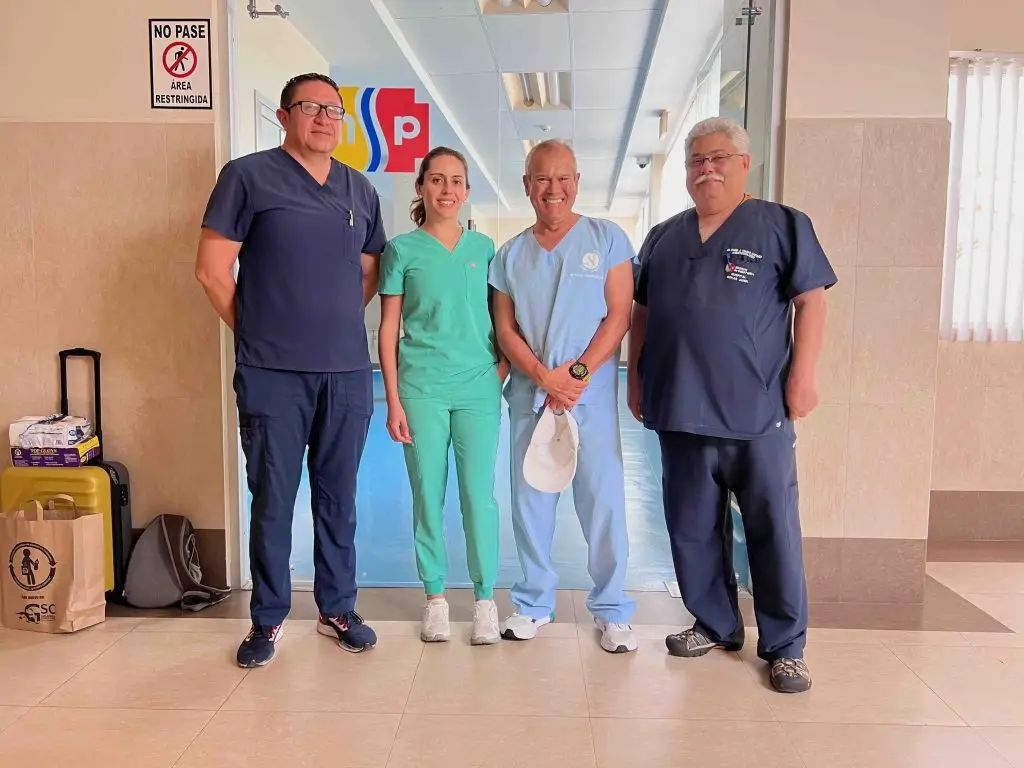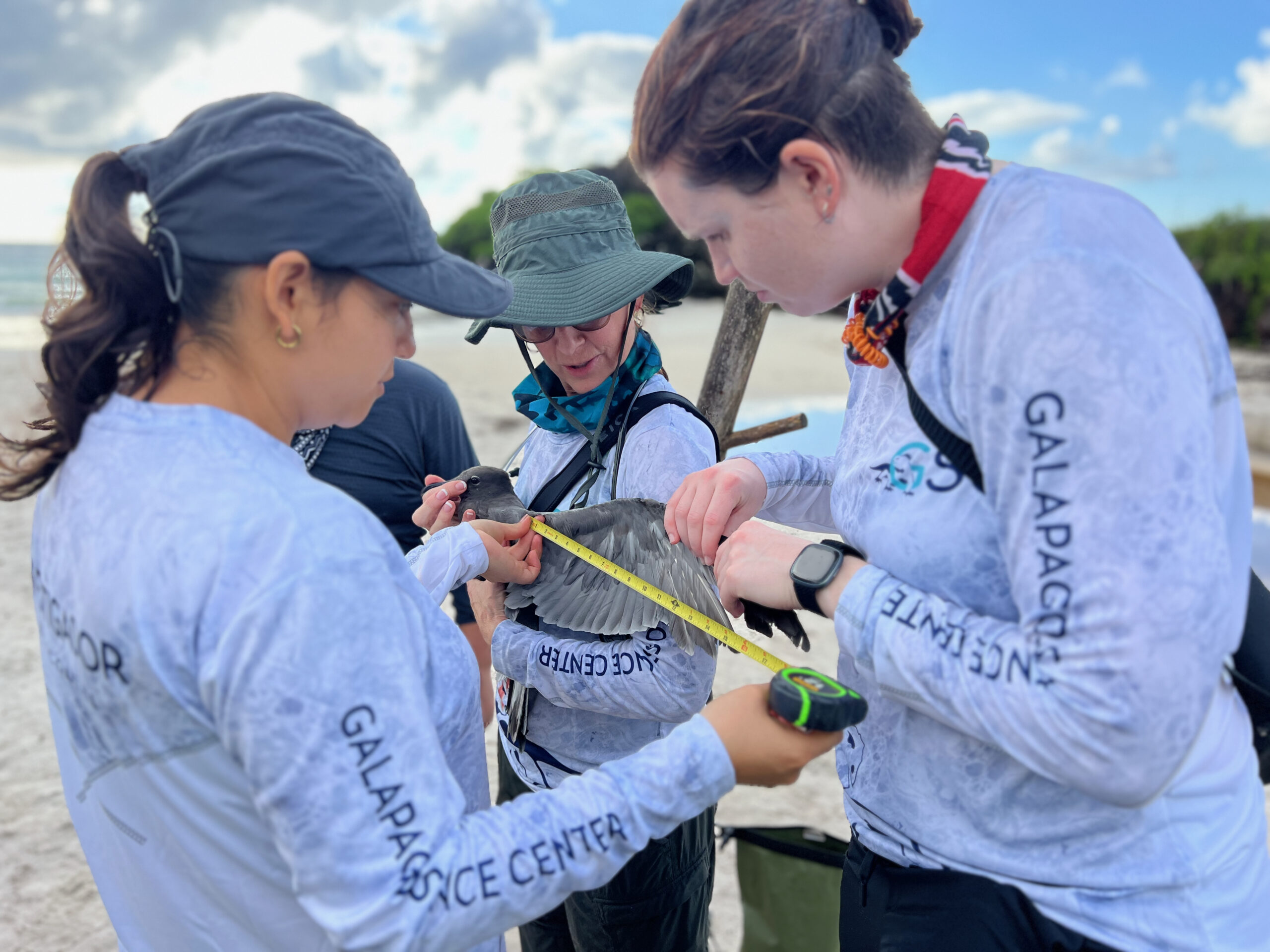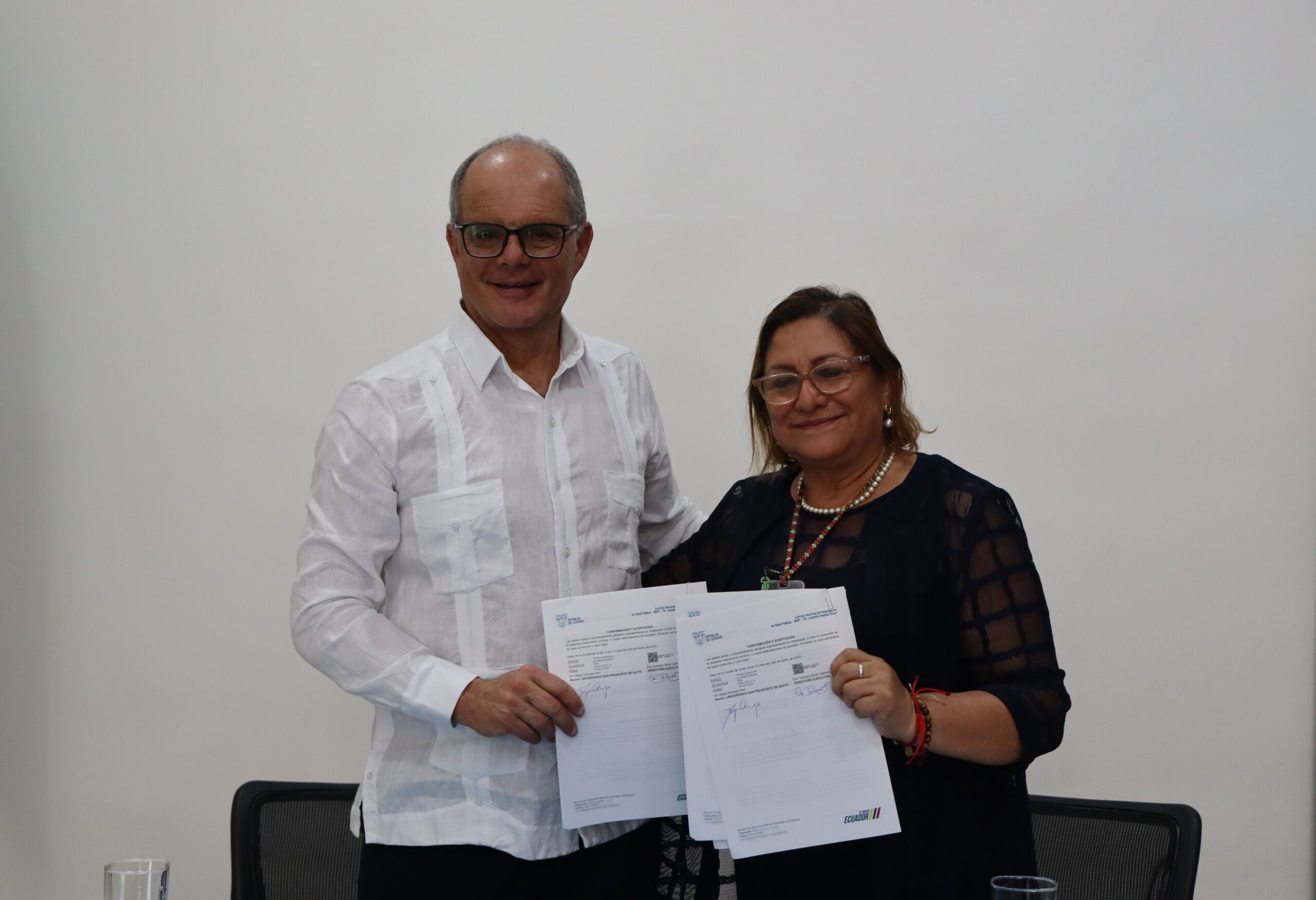The collaboration between the Universidad San Francisco de Quito (USFQ) and the Oskar Jandl Hospital (HOJ) has played a key role transforming healthcare in the Galápagos Islands, specifically on San Cristóbal Island. Since the 1960s, San Cristóbal only had a 15-bed health center. However, since the hospital’s opening in 2014, it has evolved into a modern institution providing diverse healthcare services to the community. The hospital now boasts 23 hospitalization beds, an obstetrical center with a designated operating room, a physiatry area, a neonatology area, an intermediate care unit, and an emergency room, among others. In 2016, an agreement was signed between USFQ, the Galapagos Science Center (GSC), and the Ministry of Public Health to develop research, training, and medical assistance projects. This initiative is led by Dr. Jaime Ocampo, director of Medical Systems at USFQ (SIME), addressing the specific needs of medical specialties on the islands. Medical assistance has focused on the implementation of various brigades. Below, we highlight the continuation of the third Ophthalmology Brigade, led by Dr. Ocampo and Dr. María Cristina Gabela, a medical specialist in ophthalmology and a subspecialist in retina and vitreous. This brigade placed emphasis on addressing ocular conditions such as pterygium, caused by exposure to ultraviolet radiation.
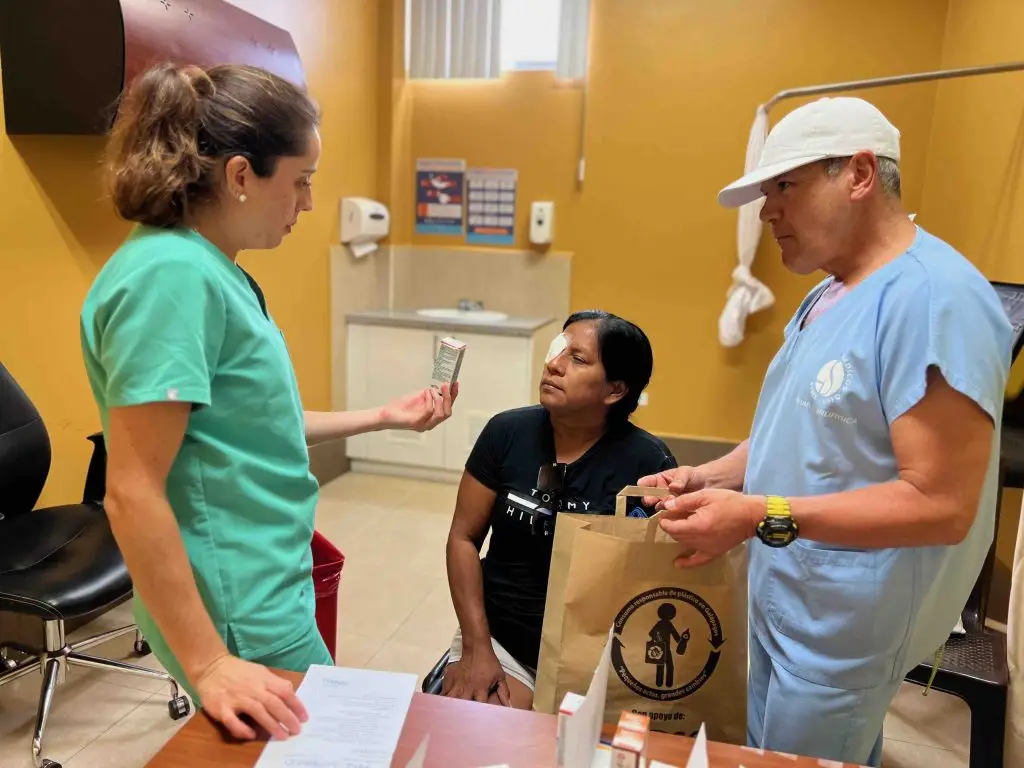
In the research area, the health needs of the island have been thoroughly explored, with a particular emphasis on the most prevalent diseases. Training sessions have strengthened the capabilities of the hospital staff in various medical specializations and administrative topics. And throughout the years, medical assistance has focused on the development of brigades addressing specific deficiencies in medical specialties on the island, ensuring that residents have access to quality services. “For nine years, we have conducted cardiology and ophthalmology brigades on San Cristóbal Island, discovering issues related to metabolic syndrome, obesity, and eye problems,” says Dr. Ocampo. “USFQ and HOJ have worked together on training, research, and medical care, highlighting the cardiology and ophthalmology brigades that provide continuous care, evaluation, and follow-up. Additionally, local ophthalmic surgeries have been performed, preventing patients from traveling to the mainland,” highlights Dr. Djalmar Zambrano, director of HOJ.
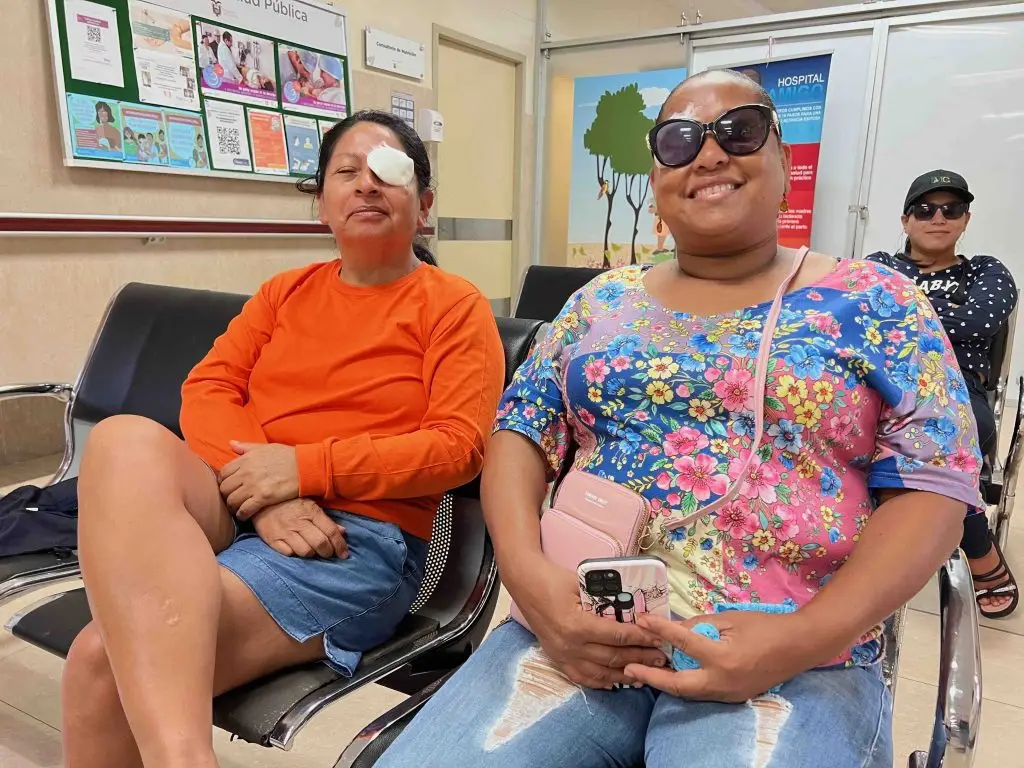
The continuation of the third ophthalmology brigade carried out 20 interventions during the first week of January 2024, with 20 surgical interventions performed to treat pterygium. Pterygium is an ocular condition caused by exposure to ultraviolet radiation, affecting the quality of life, and in some cases, leading to vision loss. “They can reach dimensions that cause astigmatism, resulting in blurred vision. Excessive growth can lead to a significant decrease in vision and, in some cases, considerably impact the patient’s quality of life. Additionally, its presence can manifest with redness and discomfort, even causing tearing,” says Dr. Gabela. To prevent pterygium, using UV protection glasses and applying lubricants in case of dry eyes are recommended. In this context, it is relevant to highlight the participation of Saval and Pharmabrand laboratories, who donated medications for the patients treated during this most recent brigade.
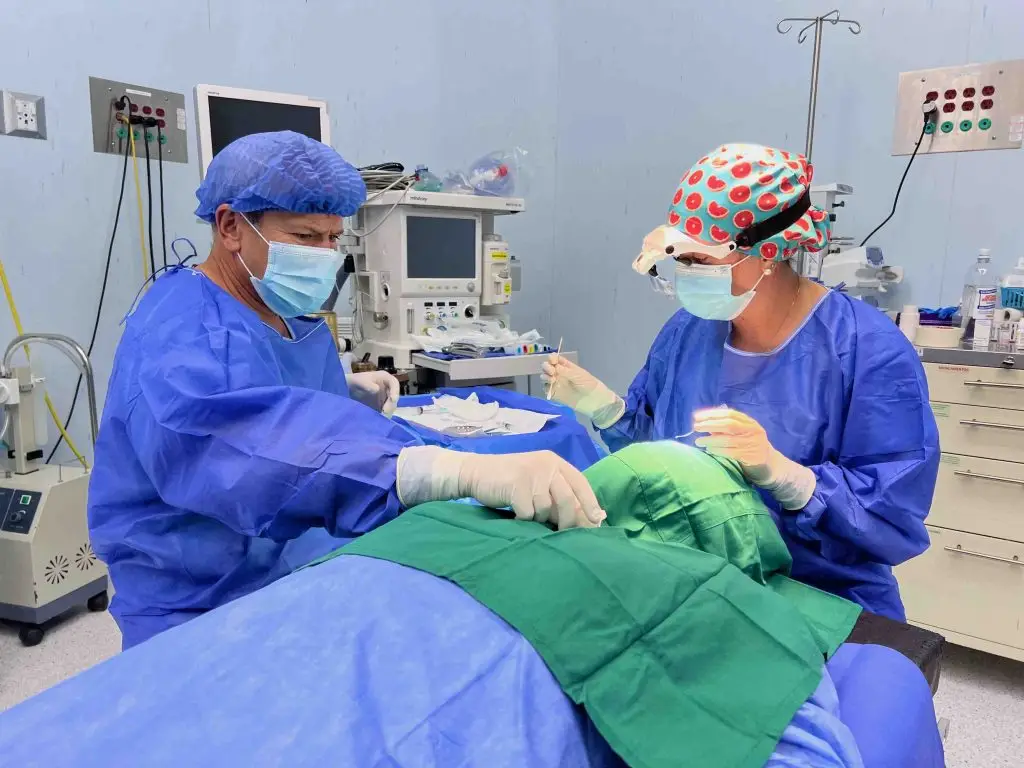
These ongoing medical brigades underscore the importance of addressing metabolic syndrome, which encompasses diseases such as obesity, diabetes, and hypertension. The research project “Healthy Family Study,” led by Amanda Thompson, director of UNC Center for Galapagos Studies and co-director of the Galapagos Science Center,, alongside other authors, has revealed serious health issues in Galápagos. Over 40% of households suffer at least mild food insecurity, while more than 50% of the population suffers from illness and are overweight. These investigations have been corroborated by the cardiology brigades carried out by specialists from USFQ, and during the four brigades they have found high levels of arterial hypertension, diabetes, obesity, and cholesterol problems. Dr. Ocampo emphasizes the need to intervene in nutritional education and promote exercise to reverse this situation. “We plan to intervene in schools to combat sedentary lifestyles and change dietary habits with a long-term campaign. Education is key, and we are working to reverse the situation in the next ten years. Constant data updates and active participation of healthcare professionals are crucial in this ongoing health program,” adds Dr. Ocampo.
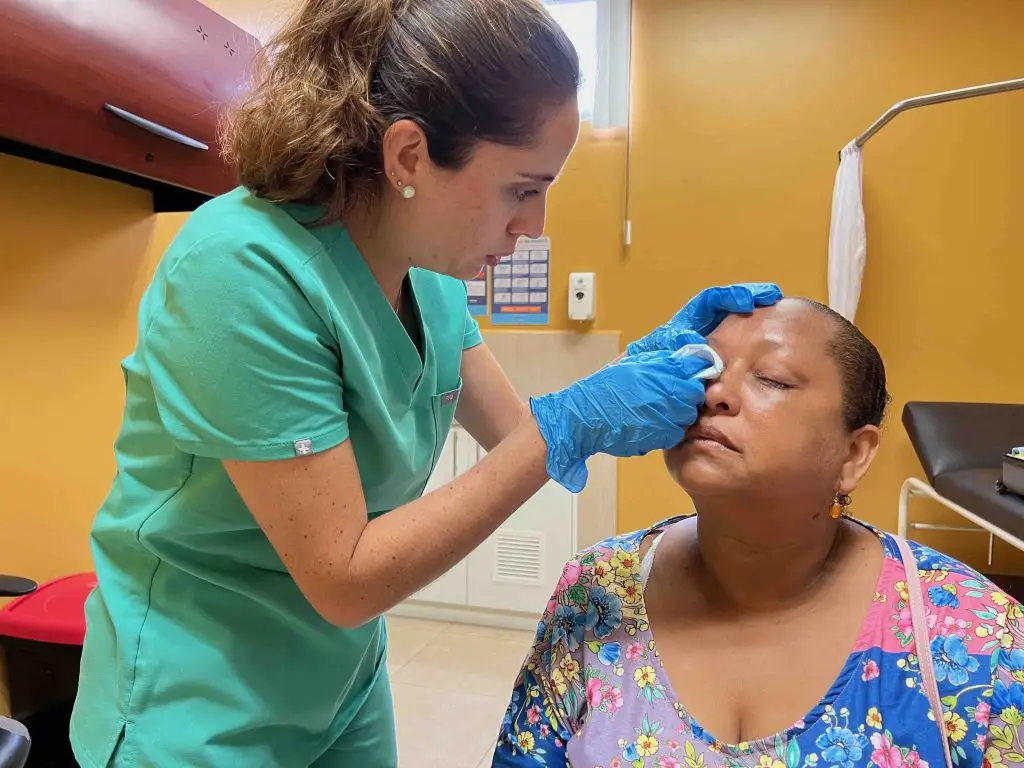
These medical attentions through brigades are intended to persist and evolve to address the changing needs of local public health, demonstrating a long-term commitment to continuously improve the quality of life in the Galápagos Islands. The future plan focuses on adapting to emerging demands, ensuring that the health of the island community remains a constant priority. “The strategic collaboration of USFQ with HOJ in Galápagos has allowed us to consolidate a strong and successful alliance for over seven years. We have effectively addressed health needs, highlighting cardiology and ophthalmology brigades that not only provide care but also continuous follow-up, demonstrating a constant commitment to improving health in the region,” says Dr. Zambrano.

